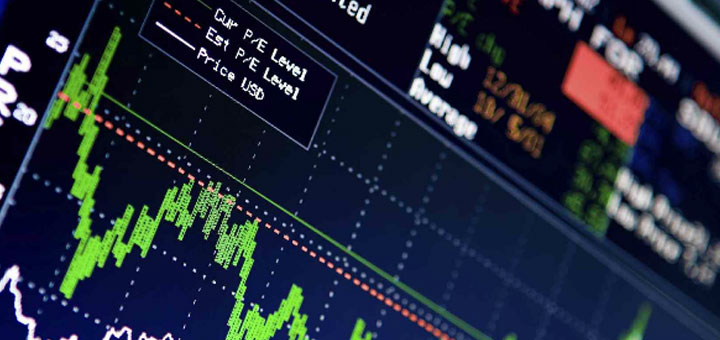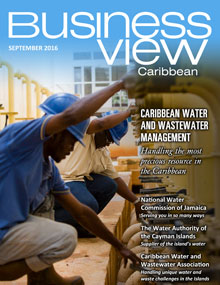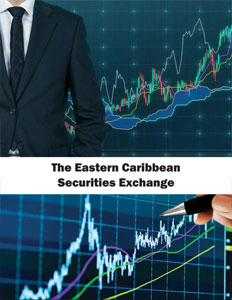The Eastern Caribbean Securities Exchange – Investing in the future
Business View Caribbean profiles The Eastern Caribbean Securities Exchange, a regional securities market for the member states of the OECS, in St. Kitts.
The Eastern Caribbean Securities Exchange (ECSE) is a regional securities market established and licensed under uniform regional legislation governing securities market activities. It was designed to facilitate the buying and selling of financial products, including corporate stocks and bonds, and government securities, for the eight ECCB member states of the Organization of the Eastern Caribbean States (OECS) – Anguilla, Antigua and Barbuda, Dominica, Grenada, Montserrat, St. Kitts and Nevis, St. Lucia, and St. Vincent and the Grenadines.
According to Trevor Blake, ECSE’s General Manager, the ECSE came into existence as a result of a diagnostic study made by the Eastern Caribbean Central Bank in the 1990s. “That diagnostic identified a number of gaps that existed in a fragmented financial system,” he explains. “Amongst those was the need for other forms of financing other than debt financing for companies in the productive sectors that drive the economy within the Eastern Caribbean. So, the Central Bank set about creating the securities market, developed the Exchange, the depository, the regulatory commission, and got the Securities Acts drafted for enactment by the member countries. And in 2001, the Exchange was launched.”
A securities market is like any other market where buyers and sellers meet to exchange goods and services. The buyers (investors) are individuals and institutions who have money (capital) to invest. The sellers are corporations, governments, and other investors. “The Exchange provides a facility for people to buy and sell securities, financial assets, including equities, i.e. shares in companies, and debt securities, which are bonds issued either by member governments, or by corporations within the Eastern Caribbean Currency Union – the eight member states of the OECS that are members of the Central Bank and use a common currency – the Eastern Caribbean dollar,” Blake explains. “We have a mix of institutional and retail investors. The retail investors mainly are in the equities side of the market; most of the institutional investors are active in the debt side of the market.”
The ECSE provides both a primary and a secondary securities market. In the primary market, a public company or government (issuer) sells its securities for the first time to investors to raise capital to support its operations. The funds generated from this sale of securities go to the issuer. In the secondary market, investors buy and sell securities among themselves. The proceeds from this trading activity go to the investors, not back to the original issuer.
Currently, the ECSE has 13 companies listed – 12 domestic companies and one cross-listed company from Barbados. “Our Exchange is slightly different from many other exchanges in the rest of the CARICOM (the organization of fifteen Caribbean nations and dependencies) in that our listings are predominantly debt securities,” Blake says. “We have a very active government securities market and we have over 100 debt instruments listed – a mixture of government and corporate bonds; which is different from most exchanges that trade predominantly equities.”
The ECSE is a fully electronic exchange, and according to Blake, it was the first regional one established in the Western Hemisphere. That means that all securities are traded in a “dematerialized” form – investors do not need to hold physical certificates to confirm proof of ownership as all shares are held in electronic form at the Eastern Caribbean Central Securities Registry Ltd. (ECCSR), a subsidiary of the ECSE. “And that lends itself easily to cross-border operations,” Blake states. “Trading is done remotely by brokers on their various islands, logging onto our application. And all securities traded in our market are completely dematerialized – there are no physical securities; they’re all held and traded fully electronically across boundaries.”
Recently, Blake says that the ECSE has been working on restructuring some of its functions in order to provide better service for its clients. The consolidation of its two subsidiaries, the ECCSR and the ECCS, into a new full service Central Security Depository (CSD) is one such initiative. “Previously, we had the ownership records and the accounts of investors who traded securities in our markets held in a separate registry, and we had a separate central securities depository that handled the post-trade operations and the market clearances and settlements after trading.”
The ECSE is also upgrading its technology. “We’re going to be going live with a new trading system within the next four or five months that will bring us right to the cutting edge of the modern functionalities that exist in terms of trading securities,” Blake reports. “We’ve been around for about 15 years with the same platform, so we are basically renovating the entire system and putting in new, modern, up-to-date trading and post-trading applications so that we can continue to grow our business and do so efficiently.”
Growing the ECSE’s business is on top of Blake’s agenda. “We are looking at making the ownership of shares and financial assets a lot more of an everyday thing within the Eastern Caribbean,” he says. “We want to extend the base of investors. Right now, we are preoccupied with the technology issues, but once we’re over that, we are going to be focusing a lot on marketing and education – trying to sensitize the public within our member countries to the benefits of investing.” Blake also wants to expand the range of investors abroad, including those members of the Eastern Caribbean Diaspora, who are presently living in the Unites States and the United Kingdom.
But Blake also realizes that the ECSE needs to grow its trading volumes from the supply side, as well as from the demand side. “So, we are looking at expanding our range of products by attracting more foreign listings and by developing things like mutual funds, which, right now, are not part of the range of products that we provide,” he says. “We want to encourage the development of mutual funds within the region so that smaller investors can get involved with investing through a managed investor program.”
Blake believes that with these initiatives in place, the ECSE can continue to grow and prosper. “We are a growing exchange; our listings are growing,” he declares. “While we predominantly have debt securities listed, we are capable of doing the full range of securities and equities. We have general trading companies, we have utilities, we have financial services, we have government bonds. We have securities that are listed from six member countries that give a degree of diversification that you couldn’t have in any other market in the region.”
As the ECSE continues to mature, it will likewise continue to provide an ongoing and powerful vehicle for raising the capital necessary for the modernization and expansion of its member countries. And because its investors will be supporting new employment and business opportunities throughout the region, the Eastern Caribbean Securities Exchange will be playing its part – investing in the future.
AT A GLANCE
WHO: The Eastern Caribbean Securities Exchange
WHAT: A regional securities market for the member states of the OECS
WHERE: Headquarters in Basseterre, St. Kitts
WEBSITE: www.ecseonline.com
PREFERRED VENDORS
Mac Pennies Computers – First incorporated in St. Kitts & Nevis in 1969, today Mac Pennies is a family-owned company that offers services such as: printing and bindery; computer sales and repair; photography; network design, installation, and management; and IT support, to local and regional businesses. – www.macpennies.com




 This information will never be shared to third parties
This information will never be shared to third parties